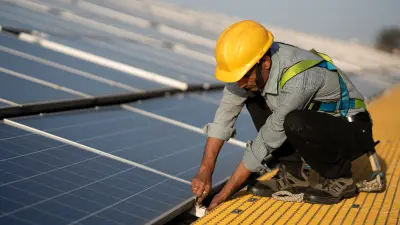Why not in our own backyard?
Key questions about climate action that all companies have to answer.

2019-05-09
As early as 2020, Bosch will be carbon neutral at its 400 locations worldwide. When it comes to the climate, words are not enough. We need deeds as well.
by Dr. Volkmar Denner
Climate action still seems to be a succession of challenges and disappointments. Global responsibility continues to be the all-pervading theme — we have global climate conferences and student demonstrations, and the United Nations has long been calling for urgent action in its sustainable development goals. But all this does is demonstrate the growing pressure for action — pressure the actions themselves cannot keep up with. The result is disillusionment. In fact, global CO₂ emissions have now risen to new record levels, according to the latest International Energy Agency report for 2018.
Globally as well, we can witness the temptation to shift responsibility — whether into the future (after all, the targets are long term in nature), or into other people’s backyards: countries or industries that, either in fact or allegedly, emit more carbon dioxide. But anyone who wants to do something about global warming instead of just talking about it has to answer three key questions: why not now, why not here, why not in our own backyard?
“Globally, we can observe the temptation to shift responsibility for climate action onto others. But the buck stops here. We have to take on responsibility now, in our own backyards.”
CO₂ neutrality in just over a year
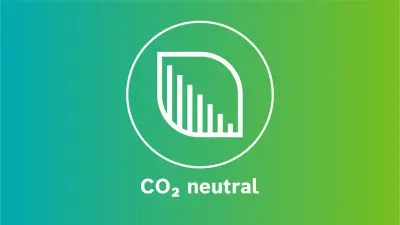
This is exactly what the targets set out in the Paris climate agreement demand. By 2100, global warming must be limited to 2 degrees Celsius, and if possible to 1.5 degrees, since industrialization began. The call for action in the most recent special report of the Intergovernmental Panel on Climate Change is even more urgent. It states that the 1.5-degree target only has a chance of success if global energy consumption becomes carbon neutral by the middle of our century. And it is precisely this CO₂ neutrality that a company like Bosch wants to achieve — and not just by 2050, or indeed not just by 2030, but by 2020. In fact, Bosch will be the first major industrial enterprise to achieve this target in just over a year.
Two levers for immediate impact
But how can this be done? After all, we’re speaking here about the energy consumption of some 400 locations around the world — 7.8 terawatt-hours in 2018, or the annual electricity consumption of all the private households in Berlin and Munich combined. It is of course impossible to cut this consumption immediately and radically. What is possible, however, is to completely offset the carbon-dioxide emissions that go with this consumption. Last year, this was some 3.3 million metric tons. Above all, there are two levers for achieving this quickly. This first is to purchase significantly more green electricity from existing wind and solar farms than is already included in the global energy mix. The second is to invest in certified green projects in order to offset the volume of CO₂ emissions that is as yet unavoidable in operations such as foundries. These are the two most significant levers for reducing a large enterprise’s CO₂ footprint to zero before the next year is out.
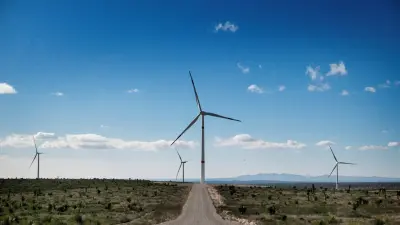
“Energy efficiency is crucial. But saving energy is a long and painstaking process.”
Up to 2030, two further levers will take effect
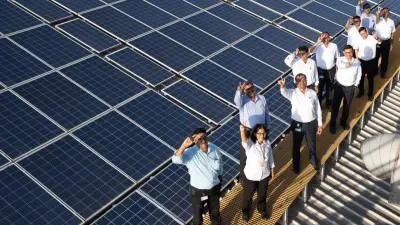
But a company like Bosch cannot let it rest at that. Achieving the major objective of climate neutrality by 2020 is just one side of the story. The other is to strive for an energy transition. It is this transition that can enhance the ecological quality of our CO₂ neutrality by 2030. And here again, there are two major levers that can be applied. First, the share of renewable energy we consume has to be significantly increased. This not only involves the large-scale expansion of photovoltaic arrays in our own plants, but also long-term, exclusive supply agreements with new wind and solar farms. However, none of this will make sense without energy efficiency. And it is here that the second lever lies — one that must be continuously applied in the years ahead. That said, applying it will be a long and painstaking process. Nonetheless, Bosch has set itself an ambitious target here as well. By 2030, it wants to save 1.7 terawatt-hours, more than one-fifth of its current annual consumption, and as much as the annual electricity consumption of all the private households in Cologne.
2 billion euros
is the amount Bosch will be investing in its CO₂-neutrality project up to 2030. Half this sum will be recuperated through energy savings.
Energy efficiency: a driver of innovation
Whether we consider it from a technical or an economic standpoint, energy efficiency is the most important of the levers for achieving CO₂ neutrality. On the one hand, it is a driver of innovation, and thus of growth. Consider connected manufacturing: in 30 Bosch plants across the globe, an energy platform is using the internet of things to control and reduce machines’ consumption of electricity. This has proved so successful in our own operations that the platform is now being marketed to others. On the other hand, the cost of energy efficiency stands in equal relationship to its benefit. By 2030, Bosch will invest two billion euros in its CO₂-neutrality project. Half this sum will go into improving energy efficiency. And it is precisely this half that Bosch will get back, since its energy costs will fall by the same amount. On balance, therefore, we will be left with one billion euros in additional costs between now and 2030.
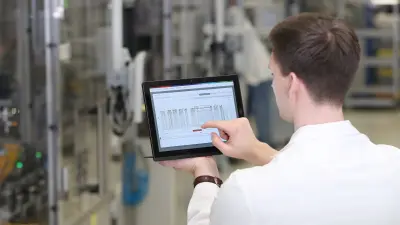
Climate action is not a farewell to growth
Companies have to redefine their future and result focus. Where they have forgone earnings up to now, it has been to make upfront investments in research and development — in future business, in other words. But now the time has come for them to invest in the future of our blue planet, and ultimately also in their own future. This is not a farewell to good business sense and growth. As the example of Bosch shows, companies can also make climate action into a going concern.


